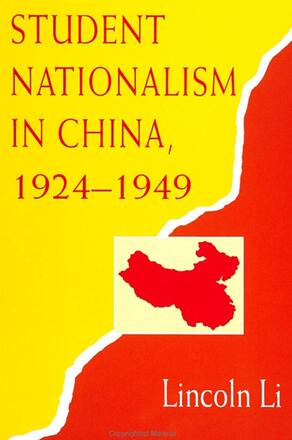
Student Nationalism in China, 1924-1949
Alternative formats available from:
Examines the critical role of the younger generation as a political force, influenced by the cultural and ideological debates during China’s reunification in 1927 and again in 1949.
Description
Li examines the critical role of the younger generation as a political force, influenced by the cultural and ideological debates during China's reunification in 1927 and again in 1949. He focuses on key organizations to illustrate how political parties turned explosive, national feelings into an organized political force. Li shows how Chinese student nationalism, despite its radical image, represents a prominent feature of continuity in Chinese sociopolitical culture.
Lincoln Li is Senior Lecturer in History at Monash University in Melbourne, Australia.
Reviews
"The most illuminating parts of the book are the similarities and contrasts the author reveals between GMD and the CCP in enlisting and organizing student nationalism during the period under investigation. By focusing on Whampoa, Kangda, and Liangda, the author turns a rather elusive topic into a manageable one. What happened in the three institutions was not only representative of three types of response to the rising tide of nationalism, but also went to considerable length in explaining the changing fortunes of the two parties. " — Tongqi Lin, Harvard University
"Li has translated an enormous quantity of fascinating and previously unknown material for English readers. Anyone who has a serious interest in twentieth-century Chinese history or the history of the Chinese Nationalist and Communist Parties will find this study essential to their understanding. " — June Grasso, Boston University